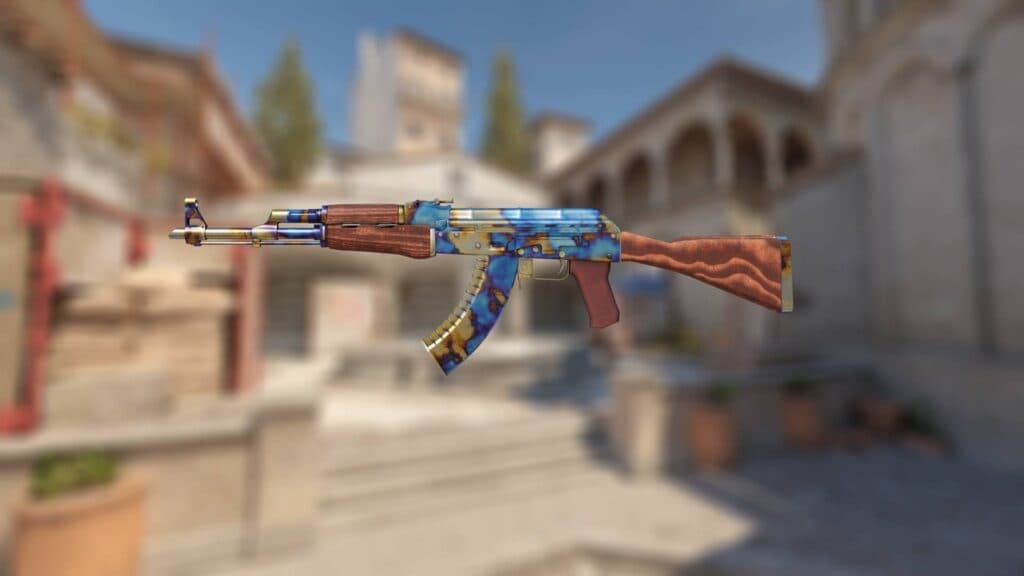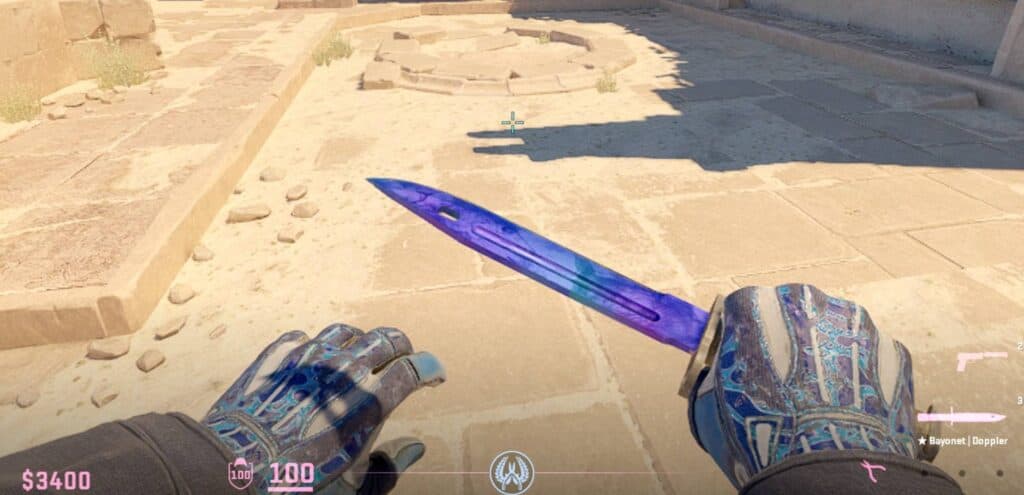One small update blew up one of the fundamental aspects of success for Counter-Strike. The market capitalization lost two billion dollars in just 10 hours.
The possibility to sell Counter-Strike skins for real-world cash is one of the pillars of the game’s impressive player count numbers and the general amount of money around it, including esports prize pools. With the update from October 23, 2025, Valve changes the industry rules and shakes up the market to a potentially critical point. Here are all the details.
CS2 knives from trade-up contracts
The official patch notes of this Counter-Strike 2 update casually mention a change to the possibilities of trade-up contracts.
- It is now possible to exchange five Covert weapon skins to one knife. For StatTrak Covert skins, you receive a StatTrak knife. Without this feature, you get a normal knife or gloves.
Knives and gloves come from the collection of the original skins.
FAQs
What is a trade-up contract?
CS2 allows players to exchange five skins for one random item of a higher rarity. This feature is called trade-up contracts.
What are Covert skins?
It’s the highest level of rarity for weapon skins in CS2. The chance to receive Cover skins from a case is minimal. Still, some Covert skins are relatively accessible.
The general number of Covert skins is very limited. There were two in the recently released Genesis Collection.
Why are CS2 knives iconic in the community?
The drop rate of CS2 knives is almost non-existent: it’s around 0.26%. Such an extreme rarity makes knives the most desirable items in the game.
In addition to this, people hunt for knives that look especially great, like the Butterfly Knife with its unique animation, and knives with rare patterns, like Ruby and Sapphire for Fade knives. Pro players regularly appear with knives at big CS2 tournaments, such as EPL Season 22, which also adds hype around these items.
What actually changes with this update
The consequences of this step by Valve are easy to foresee.
- CS2 knives become much more accessible, as people can trade their Covert skins and fill the market with new offers.
- The price of existing items drops substantially. Even if Covert skins are not cheap, they are totally not that unique as knives, or rather as knives were before this CS2 update.
The effect was almost immediate. The market capitalization of CS2 reached a record $6 billion level just recently. It lost around 30 percent for 10 hours.
Valve breaks the contract
A deeper and much bigger problem with adding CS2 knives to trade-up contracts is that this feature breaks the trust of people.
- Knives were the best items for investment. They cost thousands of dollars, and people purchased them for long-term savings and revenue.
The idea doesn’t work if Valve can change the rules of skin trading generation. Now, they may have knives accessible via trade-up contracts. Who prevents them from changing the obscure drop rules and adding a huge number of previously rare items to the market?
The unspoken contract between Valve and people in the skins industry is about keeping the rarity rules untouched. If knives lose their value, it casts a shadow on the market’s future in terms of big investment. Can AK-47 | Case Hardened get a new generation procedure so each second is a Blue Gem?
Signature uniqueness
People keep millions of dollars in their CS2 inventories. This tradition is unlikely to change too quickly because of this specific update. Still, the focus of big investments will most likely shift towards even more unique skins.
- Tournament Souvenir drops with event-specific stickers.
- Rare Phase for Fade and other unusual skin and knife patterns.
As for the competitive dimension, this update can affect big trading platforms and their sponsorship contracts with teams and tournament organizers.
The spectacular matches will still be there, and the sustainability of the esports economy will unlikely change. However, Valve certainly makes everyone involved somewhat nervous, dropping such updates out of the blue.

